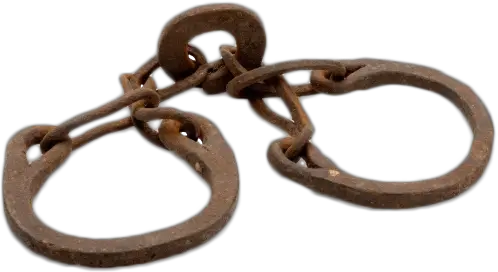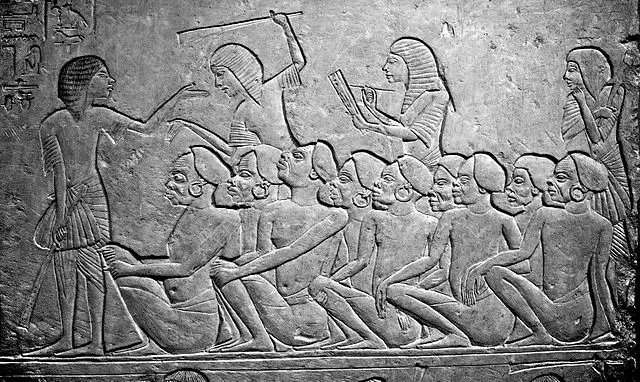Slavery was part of the economy and culture of many ancient civilizations. Ancient Egyptians had slaves, but their economy was not as dependent on slavery as in many other societies.
In addition, slaves often received better treatment in Ancient Egypt than in other parts of the world.
Who became slaves in Ancient Egypt?
Many of the slaves in Ancient Egypt were peasants, or poor people. They sometimes became slaves to pay off their debts.

Others sold themselves into slavery to escape their difficult lives. For the poorest Ancient Egyptians, having at least a place to live and food to eat seemed appealing. Children born to slaves became slaves as well.
Sometimes, slavery was a punishment for committing a crime. Other slaves were prisoners or citizens of other countries who were forced into slavery after the Ancient Egyptians defeated them in battle.
The Ancient Egyptians who had slaves preferred foreign slaves. They were often better educated. Slaves who were Egyptian citizens were usually criminals or commoners.
Slavery was often temporary in Ancient Egyptian. Debt slaves or prisoners of wars were sometimes set free after a certain period.
What did Ancient Egyptian slaves do?
Slaves often worked on major building projects, like temples and other buildings. Others tended farms or worked as house servants, gardeners, and musicians or dancers.
The least fortunate slaves worked in gold and copper mines in Sinai and Nubia, where many died from exhaustion and dehydration.
Some slaves joined the Egyptian army or worked as bodyguards for the pharaohs.
How were slaves treated in Ancient Egypt?
Compared to many other civilizations, it is believed that slaves in Ancient Egypt were treated quite well. This is why many peasants chose slavery over a life of poverty and hardship.

The religious beliefs of the Ancient Egyptians may be one reason that slaves were treated reasonably well.
After death, the Ancient Egyptians believed their hearts would be weighed to determine whether they were virtuous enough to pass on to the afterlife. Bad deeds could cause a heavy heart that would mean bad news in the afterlife.
Slaves in the royal family were held in especially high regard. They were often educated and worked as accountants or scribes. House servants cleaned, cooked, and took care of the children.
It is believed that these slaves were treated almost as well as higher ranking Egyptians. The children of some of these slaves rose to high positions or married into their former owner’s families after being set free.
Other Interesting Facts About Ancient Egyptian Slaves
- Historians have found no evidence suggesting that slaves built the pyramids. During the Old Kingdom, when the pyramids were built, historical records show that there were not many slaves in Egypt.
- The number of slaves in Ancient Egypt greatly increased during the New Kingdom, when the pharaohs had many military campaigns and wars.
- Pharaohs commonly gave slaves away to nobles and higher-ranking officials, perhaps as a reward for excellent service.
- Ramses III is said to have given 113,000 slaves to the temples during his reign as pharaoh.
- Slaves in Egypt had some rights. They could own property, and some slaves married free people and even employed servants.
- However, slaves were viewed as property. Slaves who tried to escape could be harshly punished.
- Life expectancy in Ancient Egypt was low, and some Ancient Egyptians had very few family members. They often viewed slaves as family or friends.
More Ancient Egypt facts.